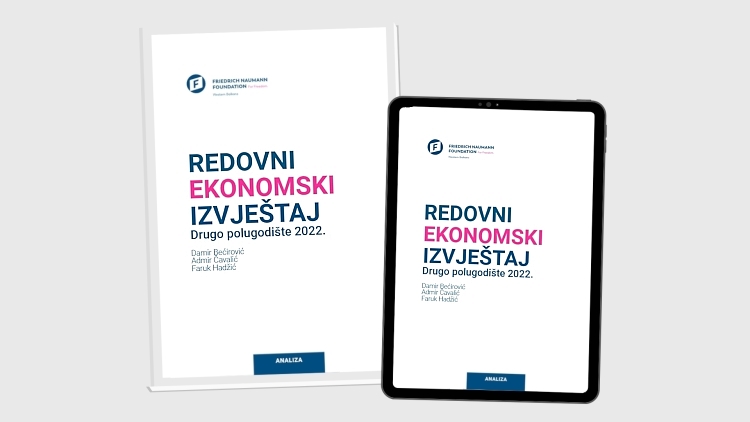Publication
Analysis: Economic Report for BiH for 2nd half of 2022

Regular economic report 2022 2/2
In 2022, Bosnia and Herzegovina's economy faced several challenges and problems that reflect the difficulties of the year. Despite its relatively high growth of four per cent, the country saw significant inflation and price increases, which made domestic economic opportunities more difficult. While the country experienced growth in exports, it also experienced unsatisfactory growth in the number of employees, especially in the FBiH entity.
The budget experienced an increase in revenues, particularly from indirect taxes, which created more significant budgetary responsibility, but unfortunately, authorities sought populistic solutions, especially given that it was an election year. Moving to the financial system sector, it is evident that it managed to maintain its stability despite the challenging macroeconomic conditions that characterized 2022.
Although the banking system is still predominantly owned by foreign private capital, the private capital of residents increased in the overall ownership structure resulting from the restructuring of Sber Bank d.d. Sarajevo and Sber Bank a.d. Banja Luka. The capital adequacy indicators in Bosnia and Herzegovina's banking sector are sound and significantly higher than the prescribed minimum values. Similarly, while there was some improvement in Bosnia and Herzegovina's capital market compared to 2021, it remains an underdeveloped market.
In a bid to present the general public with the basic findings of this report, the Friedrich Naumann Foundation (FNF) organized the lecture series "Economy Masterclass 2023." The series featured lectures by the report's authors, Admir Čavalić, Faruk Hadžić, and Damir Bećirovović, held in ten cities in Bosnia and Herzegovina.